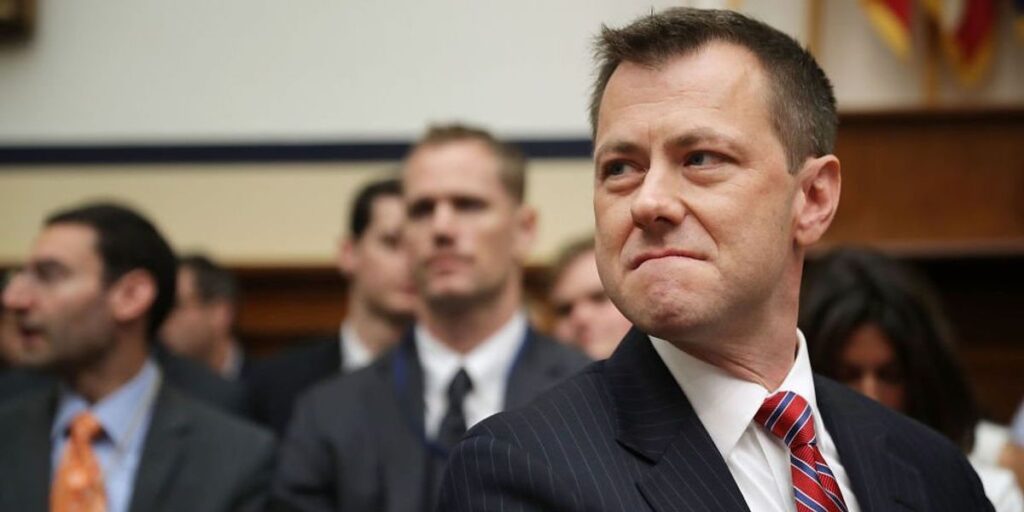Disgraced FBI agent Peter Strzok believes John Durham’s investigation into the origins of the FBI’s Trump-Russia probe “never should have taken place.”
Perhaps that is because of what Durham uncovered.
What did Durham’s report show about Strzok?
In September 2016, the CIA sent a “referral memo” to then-FBI Director James Comey and then-Deputy Assistant Director Peter Strzok about a plan that Hillary Clinton’s campaign hatched to smear Donald Trump by tying him to Russia.
“In late July 2016, U.S. intelligence agencies obtained insight into Russian intelligence analysis alleging that U.S Presidential candidate Hillary Clinton had approved a campaign plan to stir up a scandal against U.S. Presidential candidate Donald Trump by tying him to Putin and the Russians’ hacking of the Democratic National Committee,” Durham’s report explains.
The intelligence was considered so significant that then-CIA Director James Brennan immediately briefed the government’s top leaders at the time, including President Barack Obama, Vice President Joe Biden, and Attorney General Loretta Lynch, among others.
The CIA referral memo was later sent to Comey and Strzok, who initially led the Russia investigation, to determine whether Clinton’s team had hatched the plan to connect Trump to Russia “as a means of distracting the public from her use of a private mail server.”
Despite its significance, Durham explained that “none of the FBI personnel who agreed to be interviewed [for his investigation] could specifically recall receiving this Referral Memo, nor did anyone recall the FBI doing anything in response to the Referral Memo.”
Shockingly, Durham recalls one interview with a top FBI agent who was angry that he had never seen the memo:
The Office showed portions of the Clinton Plan intelligence to a number of individuals who were actively involved in the Crossfire Hurricane investigation. Most advised they had never seen the intelligence before, and some expressed surprise and dismay upon learning of it.
For example, the original Supervisory Special Agent on the Crossfire Hurricane investigation, Supervisory Special Agent-1, reviewed the intelligence during one of his interviews with the Office. After reading it, Supervisory Special Agent-I became visibly upset and emotional, left the interview room with his counsel, and subsequently returned to state emphatically that he had never been apprised of the Clinton Plan intelligence and had never seen the aforementioned Referral Memo. Supervisory Special Agent-1 expressed a sense of betrayal that no one had informed him of the intelligence.
When the Office cautioned Supervisory Special Agent-1 that we had not verified or corroborated the accuracy of the intelligence and its assertions regarding the Clinton campaign, Supervisory Special Agent-I responded firmly that regardless of whether its contents were true, he should have been informed of it.
The implication, then, is that supervisory agents working the Russia investigation, like Strzok, did not share with their investigative team what Durham called the “Clinton Plan intelligence,” which would explain why none of the agents that Durham interviewed knew about the referral memo.
What did Strzok say?
Speaking on MSNBC after Durham’s report was released, Strzok downplayed the significance of the report and said the investigation should never have taken place.
“Look, this is a predictable, sad ending to an investigation that never should have taken place,” he said.
“Shortly after [Durham] was announced in 2019, he went on the record as a prosecutor making a rare public statement that he disagreed with IG Horowitz’s conclusion that the investigation was appropriately launched, and then he spent the next three to four years with a cognitive bias trying to build a case that somehow it was. We saw the results today, and the results are clearly that he didn’t come up with anything,” Strzok added.


